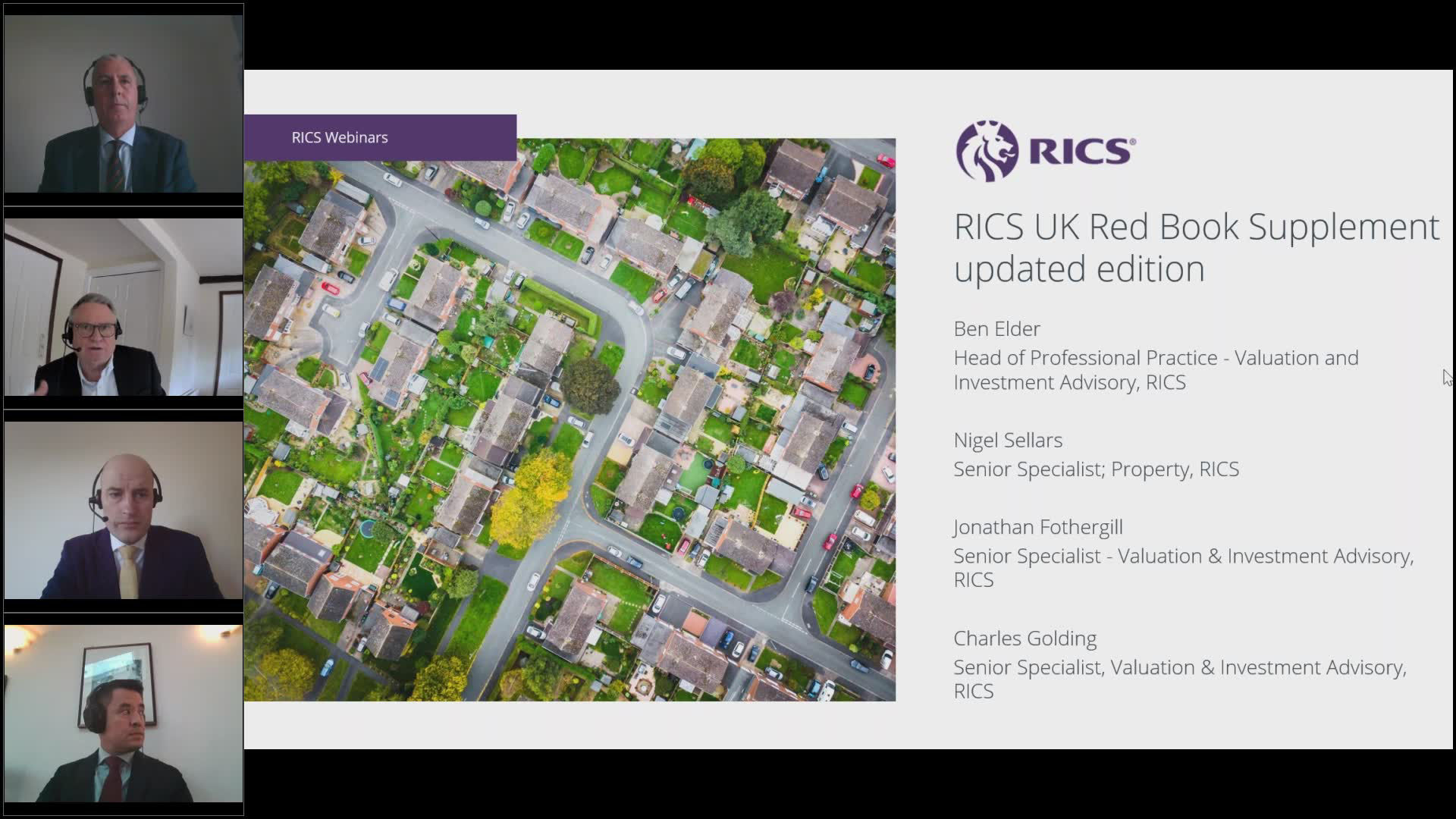The latest update to the Red Book UK Supplement was published on 19 October 2023 and came into effect 1 May 2024. It applies to all valuations where the valuation date is on or after this effective date. Specific dates relating to the new rotation policy for some regulated purpose valuations are referred to in responses to questions below.
Following publication of the updated RICS Valuation - Global Standards (Red Book) effective 31 January 2025, references have been updated in the Red Book UK national supplement.




